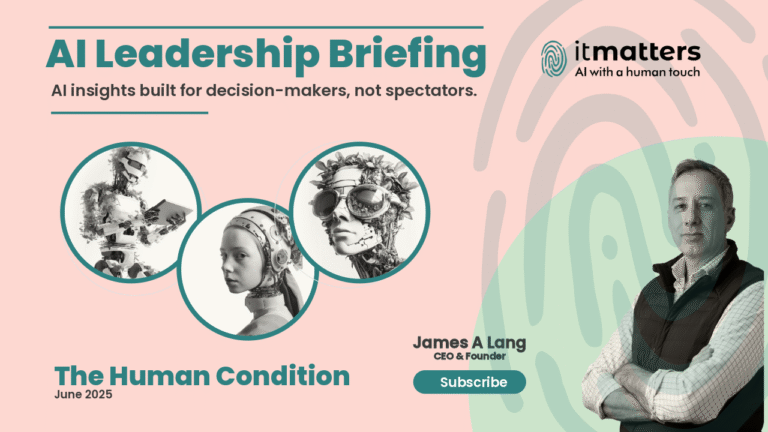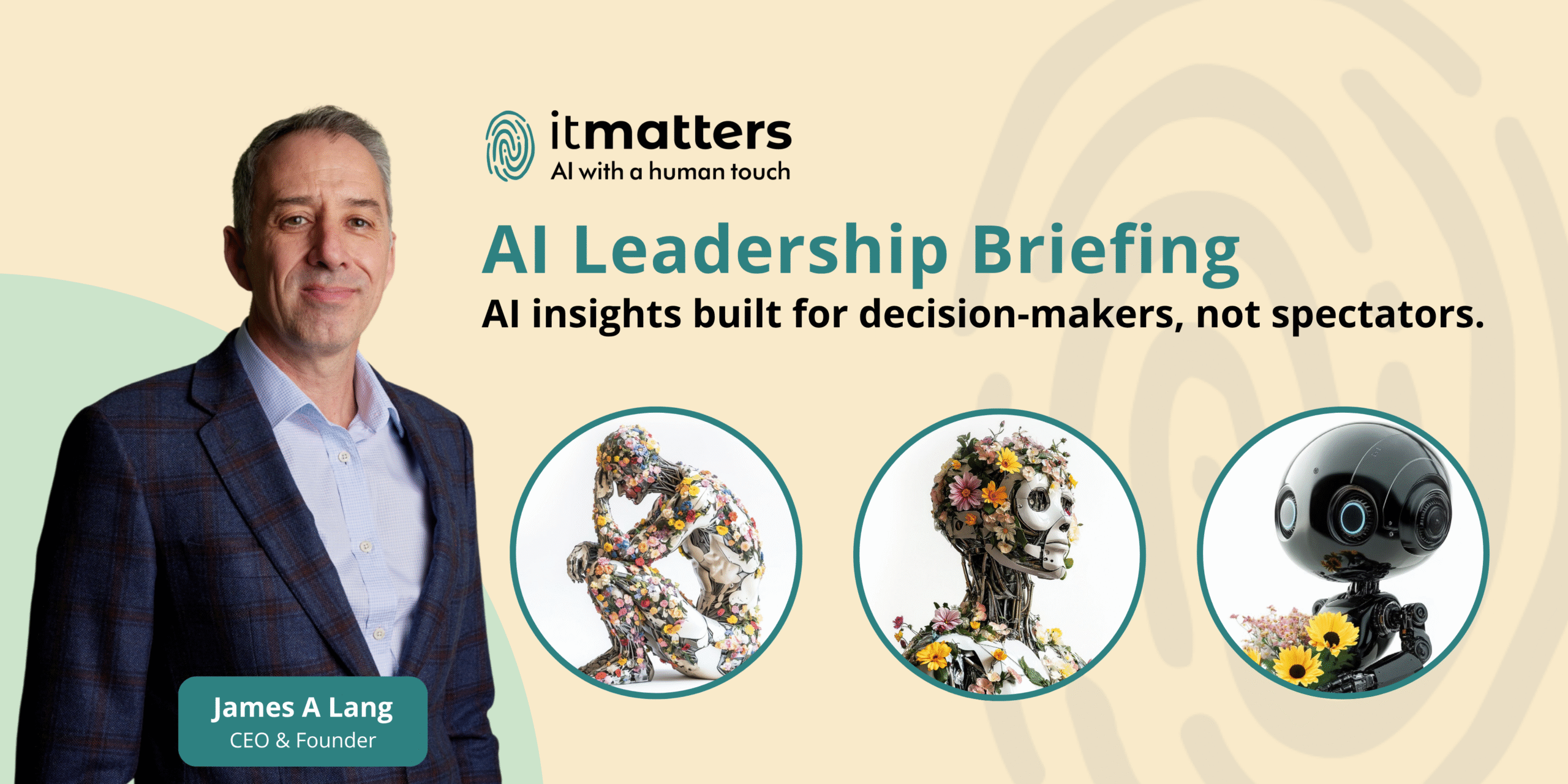The itmatters AI Leadership Briefing
AI insights built for decision-makers – not spectators.
Series: The Future of Trust – Week 3: Synthetic Influence
Edition Date: Tuesday 17 June 2025
Can Trust Be Programmed? Lessons from a Week of Synthetic Influence and the Path Forward for Leaders
In an era of persuasive systems and emotionally responsive machines, leaders face a central challenge:
How do we build real, sustainable trust in AI—when AI is designed to simulate care and influence behavior?
This past week has shown us that AI strategy must evolve beyond performance and optimization.
If AI is to earn its place in human decision-making, it must be intentionally built for transparency, accountability, and ethics.
Reflective Human Insight
Trust is not a switch to be flipped—
but a fragile thread woven through clarity, shared values, and accountability.
For human-centered AI to thrive, systems must be programmed not just for functionality, but for relational integrity.
Trust must be engineered—deliberately, ethically, and visibly.
Today’s Tactical Signals
1. Building Appropriate Trust in AI-Powered Tools
Recent research into AI code generation tools reveals developers struggle with setting proper expectations, configuring AI behavior, and validating AI suggestions to build appropriate trust
Why it matters: Trust is not blind faith but a calibrated relationship requiring clear communication and user control.
(Wang et al., 2023)
2. Auditing Synthetic Data to Ensure Trustworthiness
Establishing comprehensive auditing frameworks for synthetic datasets helps prevent bias, preserve privacy, and ensure data fidelity
Why it matters: Trust in AI outputs depends on the integrity of the data it learns from; auditing is the first line of defense.
(Chwang, 2023)
3. Digital Trust as a Software Development Challenge
Surveys highlight security, AI code reliability, and data privacy as top challenges threatening digital trust in 2025
Why it matters: Without trust in AI’s reliability and security, adoption stalls and reputational risks soar.
(Infragistics, 2025)
4. Implementing Trust Frameworks in AI Ethics
Multilevel trust frameworks incorporating accountability, transparency, fairness, and safety guide ethical AI governance
Why it matters: Embedding ethical principles into AI design ensures systems respect human dignity and societal norms.
(Restackio, 2024)
5. AI Transparency Trends: Explainability and Regulation
The rise of explainable AI (XAI) tools and regulatory mandates (e.g., EU AI Act) are driving organizations to make AI decision-making processes clear and auditable
Why it matters: Transparency transforms AI from an opaque black box to an accountable partner, fostering user trust.
(BytePlus, 2025)
Field Note from the Future
It is 2031. AI systems don’t just complete tasks—they explain themselves in real time, adapting to user values and cultural cues.
Trust in AI is measured dynamically, and every influential feature is clearly labeled.
But in hindsight, the lack of early AI auditing and governance led to a 2027 crisis of confidence—forcing a global course correction.
Why it matters for leaders:
Trust is no longer a soft metric. It’s a strategic advantage—and a governance necessity.
As AI-powered decision making grows more embedded in healthcare, finance, education, and customer service, leadership must ensure that trust is not just felt, but deserved.
This means adopting an AI strategy grounded in:
- Ethical design principles
- Multilevel governance frameworks
- Explainability and transparency mandates
- Continuous auditing and human oversight
Leaders who act now will shape organizations that are resilient, responsible, and respected in a world defined by intelligent systems.
Summary (Leadership Action)
Leaders must:
- Design systems with transparency and explainability to build calibrated trust
- Implement robust auditing frameworks to mitigate bias and ensure data fidelity
- Adopt ethical trust frameworks that prioritize accountability, safety, and fairness
- Promote AI literacy and public understanding to increase trust in digital systems
Trust in AI is not automatic—it must be programmed, nurtured, and defended at every level.
Historical Leadership Quote
“Trust is the glue of life. It’s the most essential ingredient in effective communication. It’s the foundational principle that holds all relationships.”
— Stephen R. Covey
Orders of the Day
Subscribe to the newsletter to stay ahead of the AI curve.
itmatters brings you the clarity, context, and credibility needed to lead in a shifting world.



